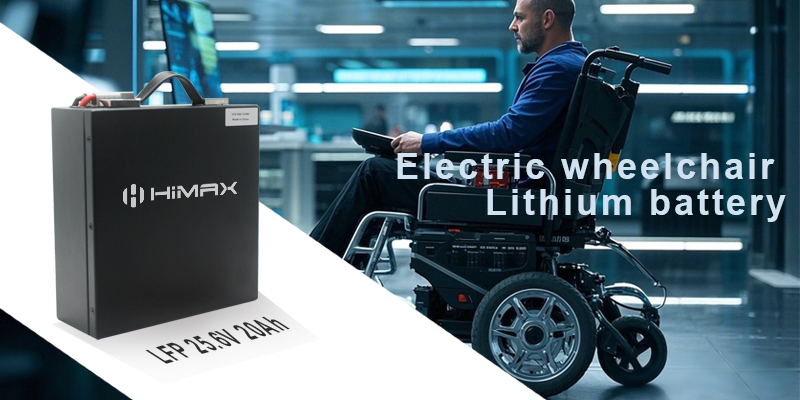Why It’s Important to Recharge Lithium Batteries Every Three Months
Lithium-ion batteries are known for their high energy density, low self-discharge rate, and long cycle life. However, even with all these advantages, regular maintenance charging is still essential — especially when the battery is not in active use.
At Shenzhen Himax Electronics Co., Ltd., we always recommend our customers to recharge their lithium batteries every three months, whether the pack is in storage, standby, or temporarily unused. This simple habit can make a significant difference in the lifespan, safety, and performance of your battery pack.
1. All Batteries Lose Energy Over Time
Even when disconnected from any equipment, a lithium-ion battery gradually loses energy due to two main factors:
Self-discharge: The natural chemical reactions inside the cells slowly reduce the stored charge.
BMS (Battery Management System) standby consumption: The BMS draws a small current to monitor cell voltages and protect the pack.
While these currents are small, over weeks or months they can reduce the pack’s voltage significantly. If the voltage drops below the safe threshold (usually around 2.5–3.0V per cell), the battery can enter an over-discharged state, which permanently damages the cells.
2. What Happens When a Battery Is Not Recharged Regularly
When a lithium battery remains in a low-voltage condition for too long, several harmful processes can occur:
Degradation of the electrolyte: The internal electrolyte becomes unstable, leading to capacity loss.
Copper dissolution: The current collector inside the cell can start to dissolve, creating internal shorts.
Increased internal resistance: This reduces the battery’s ability to deliver power effectively.
Permanent capacity loss: Once deep over-discharge occurs, the battery cannot recover to its original capacity, even after charging.
In some cases, an over-discharged pack may become unsafe to recharge at all.

3. Why the “Every 3 Months” Rule Works
The “recharge every three months” rule is based on the natural self-discharge rate and BMS power consumption of most lithium battery systems. For example:
A well-designed battery pack from Shenzhen Himax Electronics Co., Ltd. typically has a self-discharge rate below 3% per month, including BMS standby current.
After 3 months, the battery may have lost around 9–10% of its stored energy.
Recharging at this interval keeps the voltage within a healthy range, preventing it from falling below the critical limit. This helps the cells stay balanced and chemically stable over long periods of storage.
4. Best Practices for Battery Maintenance
To keep your lithium battery in top condition, Himax engineers recommend the following maintenance guidelines:
Store at 50–60% state of charge (SOC): Neither fully charged nor fully empty.
Recharge every 3 months: Even if the pack is unused, give it a short top-up charge.
Avoid storing in extreme temperatures: High heat accelerates aging, while low temperatures slow down chemical recovery.
Use the correct charger: Always use a charger designed for the specific lithium chemistry and voltage configuration.
Check voltage before use: If the pack has been idle for several months, measure the voltage before powering up the system.
Following these steps ensures the battery remains safe, stable, and ready for use whenever needed.
5. Real Example
Imagine a 14.8V 20Ah lithium-ion battery pack stored in a warehouse for six months without recharging.
If its self-discharge rate is around 3% per month, it could lose over 15% of capacity.
Combined with BMS standby current, the total voltage may drop close to the cutoff point.
When this happens, the battery may appear “dead” or fail to charge properly. A simple 3-month top-up would have prevented this
problem completely.

6. Conclusion
Regular recharging is not just maintenance — it’s protection for your investment. Keeping lithium batteries within a safe voltage range ensures:
Longer cycle life
Stable capacity
Safe operation
Reliable performance when needed
At Shenzhen Himax Electronics Co., Ltd., we design our lithium battery packs and BMS systems to deliver long-term stability with minimal self-discharge. However, even the most advanced batteries require proper care. Recharging every three months is an easy and effective way to protect your battery, avoid over-discharge, and ensure it performs like new — every time you power it on.









